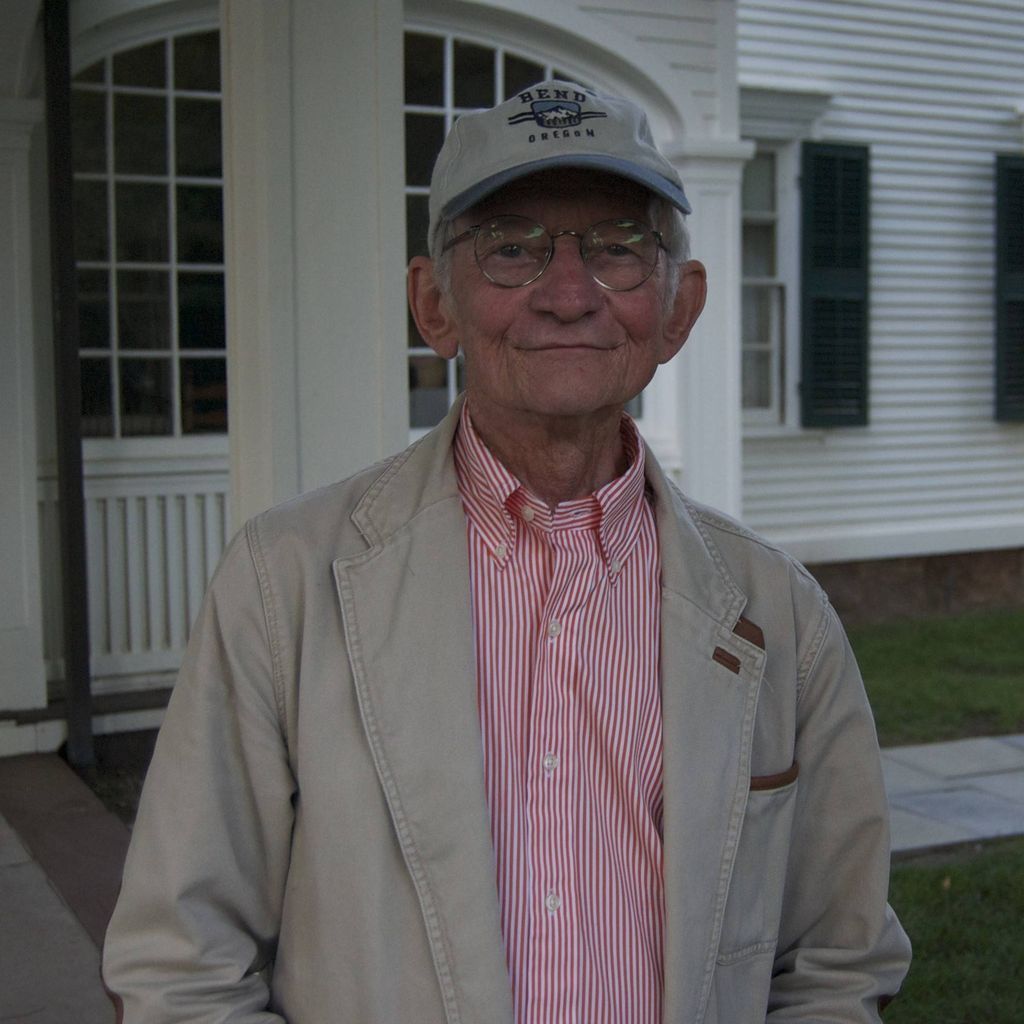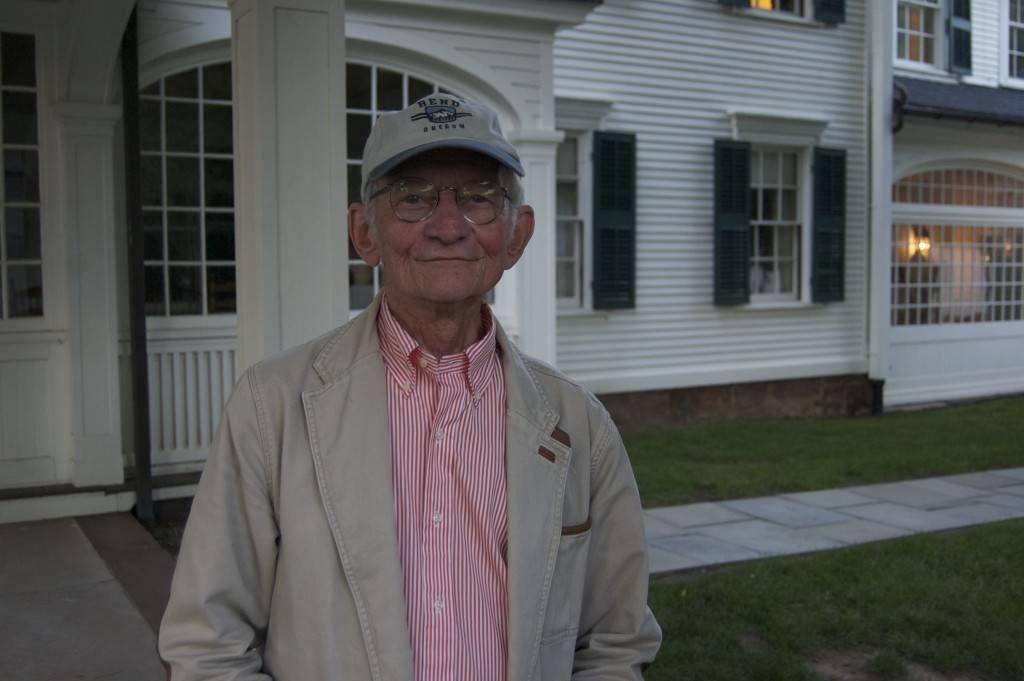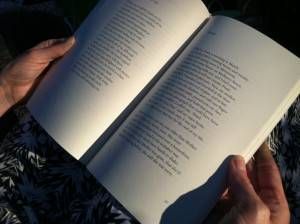
Seven Things I Didn’t Expect to Learn About Poetry at a Ted Kooser Reading
On June 24, Pulitzer Prize winner and former U.S. Poet Laureate Ted Kooser read some of his poems, kicking off the summer-long Sunken Garden Poetry Festival at the Hill-Stead Museum in Farmington, Conn. A friend of mine, a poet herself, brought me along. I am not a poet — poetry escapes me in the way math and music composition escapes me — but I was blown away by the event.
I had expected to attend the reading, hear some poems, and, frankly, drink some beer outside. I did not expect to see a crowd of hundreds of people at a poetry reading on a Wednesday, nor was I prepared for Kooser, a quiet Nebraskan in a baseball cap, to leave me feeling emotionally pummeled after reading an hour’s worth of poetry.
Here are some of the things I didn’t expect to learn about poetry (and poetry events) at the Kooser reading:
- Poets can be like street photographers. Kooser is exactly like a photographer, snapping unwary people’s pictures on the street. Most of the poems he read were short, and focused on one or two people, caught in a moment of everyday life. Kooser wrote about an old couple sharing a sandwich at a diner. Another poem captured a blind girl and her boyfriend, kissing good-bye at an Arby’s. Yet another described two men sitting together, right down to the tractor applique on the older man’s hat. No one is safe.
- Poets can be like filmmakers. One poem, “Pearl,” tells the story of Kooser’s visit with his mother’s cousin, Pearl. The poem veers away from the news he drove miles to tell her — his mother had just died — and explores both Pearl’s memories of the deceased and her worries about her own mortality. It’s a sweeping poem, and an emotional punch to the gut. “Pearl,” published in Kooser’s book Delights & Shadows, actually was made into a short film by filmmaker Dan Butler. You can see it at NewEnglandFilm.com. (I could not bring myself to watch it. The poem itself was so sad.)
- We need to talk about language. Kooser’s poem, “Mother,” was, for me, the most powerful poem he read that evening. It’s a love letter to his mother, then one month dead, updating her on the state of the weather, and the flowers by the side of the road, and the geese in a nearby pond. Kooser manages to celebrate the life of the land while mourning the death of his mother. The language he uses, while measuring the time since her death in weather patterns, is absolutely stunning: “a storm that walked on legs of lightning/dragging its shaggy belly over the fields.” I don’t think I will ever see a thunderstorm in quite the same way again.
Bring the book to the reading. You know how you’re not supposed to be that guy who wears the tee shirt to the concert? The same does not apply to poetry readings. Bring the book, and not just because you can get it signed later. Bring it so you can follow along. Being able to hear the words in the poet’s own voice while you experience how the words are written on the page only enhances the experience.
- Make sure everyone can enjoy the poems. Having an American Sign Language interpreter at a poetry event is a very good idea. The Hill-Stead Museum had interpreters on hand for the reading. Everyone should be able to experience live poetry.
- People really love poets. A lot of people will come out on a Wednesday night to see a poet laureate. I thought there’d be a few dozen die-hards at the reading. I was wrong. There were hundreds of people on the grounds of the Hill-Stead Museum, waiting to see Kooser.
- Poetry changes you for the better. It’s hard to see the world the same way after spending an evening immersed in a poet like Kooser’s work. The world was just a little more beautiful when we pulled up our lawn chairs and coolers and headed for the car, and the people around us seemed more human, like they could be the subjects of a poem.
If you’re in Connecticut and you want to join the hordes of poetry fans that attend the Hill-Stead Museum’s Sunken Garden Poetry Festival, the festival is ongoing this summer. You can find more information here.









